1. Awakening the Digital Imagination
1.1. components
1.1.1. Syllabus The New Media Reader (MIT)
1.1.2. dashboard/infohub
1.1.3. separate infohub for second life participants
1.1.4. group blogs
1.1.5. offline meetings
1.1.6. meetings in Second Life
1.1.7. Twitter
1.2. format
1.2.1. free
1.2.2. on invitation or demand
1.2.3. directed by course organizer
1.2.4. using syllabus
1.2.5. 12 weeks
2. Toward a literacy of cooperation
2.1. components
2.1.1. texts/videos/syllbaus
2.1.2. live meetings
2.1.3. blogs
2.1.4. forums
2.1.5. mindmaps
2.1.6. wiki
2.1.7. twitter
2.1.8. games
2.1.9. social bookmarks
2.1.10. New node
2.2. format
2.2.1. not free
2.2.2. limited group
2.2.3. highly directed
2.2.3.1. actively participate in live sessions
2.2.3.2. write blogposts
2.2.3.2.1. at least one each week
2.2.3.3. contribute on forums
2.2.3.3.1. two posts each week
2.2.4. many in-house tools
2.2.5. six weeks
3. business models
3.1. sponsoring
3.1.1. public
3.1.2. private
3.2. ads
3.3. subscriptions
3.4. event fees
3.5. services
4. MOOC
4.1. components (platforms) using HASHTAGS
4.1.1. Twitter
4.1.1.1. backchannel
4.1.1.2. share links
4.1.1.3. connect
4.1.1.4. follow conferences
4.1.1.5. have conversations
4.1.2. Facebook
4.1.3. Google Plus
4.1.4. Google search
4.1.5. Google Alert
4.1.6. RSS (gRSShopper)
4.1.7. Google Reader
4.1.8. Netvibes (dashboard for your resources)
4.1.9. iGoogle (another dashboard for your resources)
4.1.10. Google Groups
4.1.11. YouTube
4.1.12. Flickr
4.1.13. Delicious, Diigo
4.1.14. Discussion threads
4.1.15. Blogs
4.1.16. Newsletters
4.1.17. collaborative mindmapping
4.1.18. Live meetings
4.1.18.1. web conferencing (elluminate/blackboard, fuzemeeting, bigbluebutton, Google+ Hangout)
4.1.18.1.1. video
4.1.18.1.2. audio
4.1.18.1.3. whiteboard
4.1.18.1.4. text chat
4.1.18.1.5. screen sharing
4.1.18.2. text chat, integrating other files, video (CoverItLive)
4.1.18.3. virtual environment (second life, opensim, ...)
4.1.18.3.1. immersivity
4.1.18.3.2. 3D mindmapping
4.2. format
4.2.1. no one central curriculum
4.2.2. no emphasis on memorization
4.2.3. no money: free
4.2.4. participation: open,'massive'
4.2.5. focus on interaction
4.2.5.1. resources
4.2.5.2. course participants
4.2.6. bringing unique perspectives
4.2.7. 36 weeks
4.2.8. try to structure yourself
4.2.8.1. write x posts a week
4.2.8.2. comment on y posts a week
4.2.8.3. check your RSS / Twitter z times a day or week
4.2.8.4. define your goals
4.2.8.5. evaluate
4.2.8.5.1. not too soon
4.2.8.5.2. in broad terms
4.2.8.5.3. manage expectations
